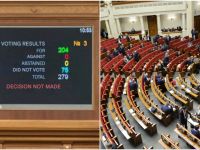Torture and abuse were widely practiced by Lebanese security forces in 2014, a U.S. State Department report on global human rights said.
The most significant human rights abuses during the year were torture and abuse by security forces, harsh prison and detention center conditions, and limitations on freedom of movement for Palestinian and Syrian refugees, the report said.
The annual report, released Thursday, said information obtained showed that Lebanese security forces “abused detainees and used torture to obtain confessions or encourage suspects to implicate other individuals.”
The report comes days after the leak of videos showing security officers beating Islamist inmates in Roumieh Prison in one of the largest scandals to hit the country this year.
Five officers suspected in the scandal have been arrested, and officials insist that their actions did not reflect the policies of security institutions. But Thursday’s report suggests otherwise.
The U.S. report asserted that torture occurred in certain police stations, the detention installations of the Defense Ministry and in the Internal Security Forces’ Information Branch facility.
The report referenced testimonies of former prisoners, detainees and reputable human rights groups.
“The methods of torture and abuse included continuous blindfolding, hanging detainees by wrists tied behind their backs, violent beatings, blows to the soles of the feet, electric shocks, sexual abuse, immersion in cold water, extended periods of sleep deprivation, being forced to stand for extended periods, threats of violence against relatives, and deprivation of clothing, food and toilet facilities,” the report said.
Conditions in Lebanese prisons, in particular Roumieh, were life threatening, it added.
The Lebanese state continues to deny that security forces systematically abuse detainees, but acknowledges that violent acts “sometimes” occur during preliminary detention, the report said.
It added that despite the presence of Lebanese security forces and UNIFIL, “Hezbollah retained significant influence over parts of the country, and the government made no tangible progress toward disbanding and disarming armed militia groups, including Hezbollah.”
“Palestinian refugee camps continued to act as self-governed entities and maintained security and militia forces not under the direction of government officials,” the report added.
The report said Lebanon “was increasingly affected by the Syrian crisis, which further polarized its politics, paralyzed many state institutions, generated a massive humanitarian refugee crisis, depressed the economy, inflamed sectarian tensions and degraded national security.” The spillover of violence killed people throughout the country, particularly in Tripoli, Arsal and Beirut’s southern suburbs, by nonstate actors, including gangs and terrorist organizations, the document said.
Separately Friday, Human Rights Watch urged Lebanese authorities to adopt wide-ranging measures to combat torture, calling on the government to bring national laws and practices in compliance with its international obligations.
Nadim Houry, HRW’s deputy director for the Middle East, described the leaked Roumieh Prison videos as “the tip of the iceberg,” noting that local and international organizations have been documenting torture and abuse of detainees in Lebanon for years.
HRW pressed judicial authorities to investigate all allegations of torture “regardless of the identity of the person accused.”








